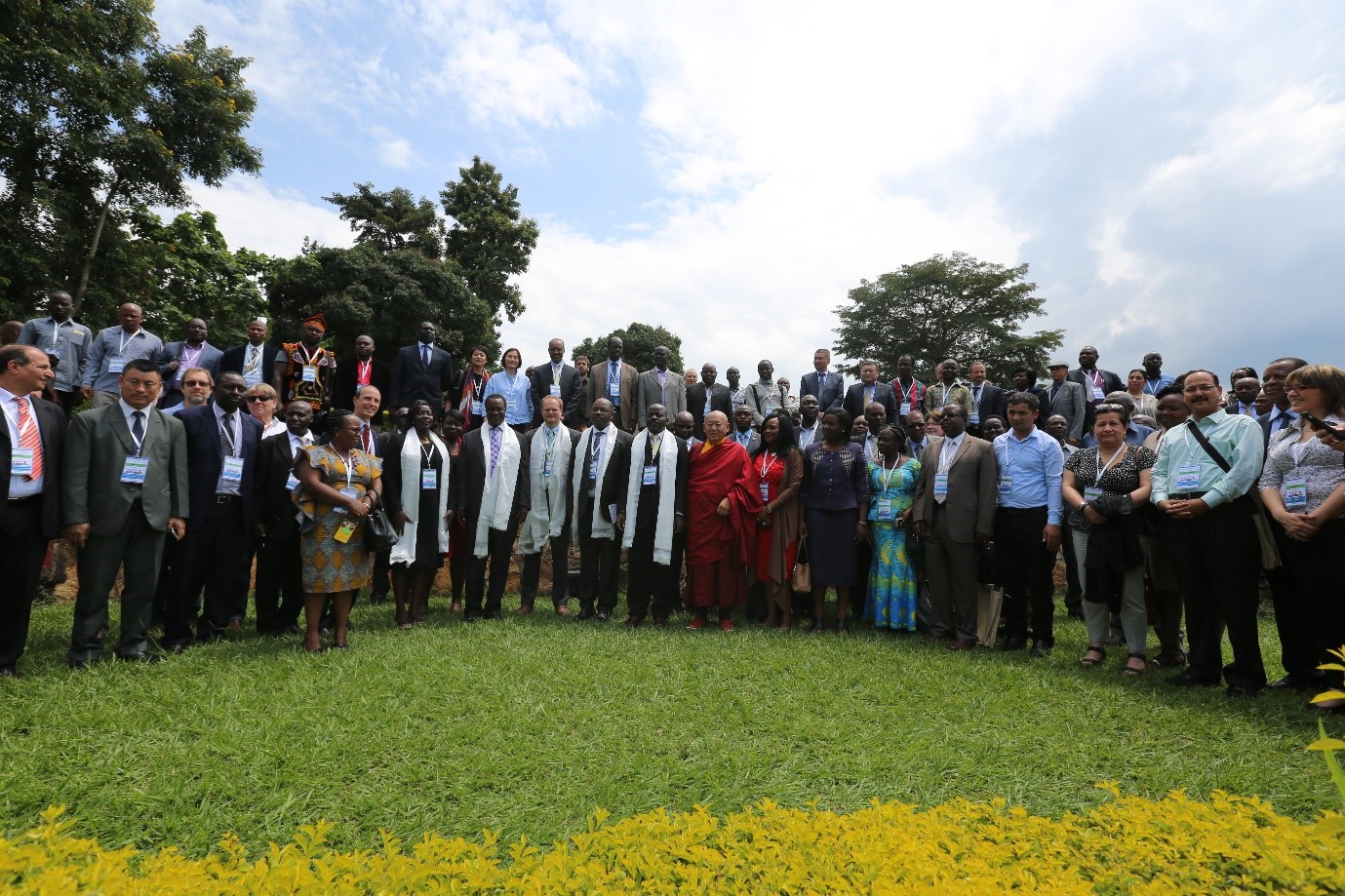

More than 250 delegates from around the world gathered in Uganda at Mbale Resort Hotel, from 17th to 20th October 2016, for the World Mountain Forum 2016. This forum served as a platform to share information and discuss the challenges and future opportunities for sustainable mountain development through building on the existing frameworks such as SDGs and Paris Agreement. After thematic discussions on Mountain and climate change; Mountain communities and livelihoods; Mountain ecosystem services and Sustainable mountain agriculture, and a high level segment, a call for upscaling Action have been drawn, entitled “Don’t leave Mountains Behind”. This calls on governments, politicians, decision makers, development and multilateral agencies, financing institutions as well as mountain stakeholders to form policy, gather knowledge and take action on reaching the targets of the Paris Agreement and SDGs through specific attention to mountain regions; recognizing upstream and downstream links, especially with regards to mountain ecosystem services; speaking with one global mountain voice; and promoting the inclusion of mountains in international processes and negotiations among others. This call for up-scaling action was divided into three sections including policy, knowledge and action on the ground at global, regional and national levels. Below are some elements of the draft call picked when Thomas Hofer presenting the results of thematic discussions to the high level segment of the forum:
POLICY LEVEL
At global levelKNOWLEDGE LEVEL
At global levelACTION ON THE GROUND
At global levelDuring the celebration of the International Mountain Day at Paris, 11 December, the UN Environment Programme (UNEP) concludes a series of Mountain Adaptation Outlooks. By promoting policies in favour of ecosystem-based adaptation in mountain regions,
To mark World Environment Day 2016, The International Centre for Integrated Mountain Development (ICIMOD) has launched the ICT for Mountain Development Award 2016. This award which is being issued for its third consecutive year recognizes innovations
Countries of the Hindu-Kush-Himalayan region have now started pondering about the creation of the Himalayan council. This idea was discussed during a Knowledge Forum on Climate-Resilient Development jointly organized by the Ministry of Agriculture an
Indigenous and traditional peoples living in mountains are known to sustain important traditional knowledge and a diversity of resilient genetic resources that are adapted to mountain conditions. As an example, mountain farmers have explicitly design
Le 29 Aout, lors d’une conférence de presse, Hon. Mary Kitutu - le Ministre de l’Etat chargé de l’environnement - a exprimé son enthousiasme pour le quatrième forum sur la montagne. Elle a indiqué que le gouvernement de l'Ouganda est optim
In the afternoon of 17th October 2016, the World Mountain Forum 2016 kicked off at Mbale Resort Hotel, in Uganda. The Forum started with a Special Africa Mountain Event where different Sustainable Mountain Development (SMD) actors presented updates o
In a refreshing side event to the WMF 2016, UNEP and partners presented the preliminary findings of the Waste Management Outlook (WMO) for mountain regions, a publication that will be launched on this year’s World Mountain Day (11 December 2016).
During the closing ceremony of the World Mountain Forum 2016 that was held in Mbale, Uganda on 17-20 October 2016, His Excellence Edward Ssekandi, the Vice-President of Uganda launched the Uganda Sustainable Mountain Development Strategy. The s